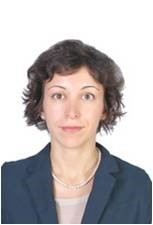Studying at the University of Verona
Here you can find information on the organisational aspects of the Programme, lecture timetables, learning activities and useful contact details for your time at the University, from enrolment to graduation.
Academic calendar
The academic calendar shows the deadlines and scheduled events that are relevant to students, teaching and technical-administrative staff of the University. Public holidays and University closures are also indicated. The academic year normally begins on 1 October each year and ends on 30 September of the following year.
Course calendar
The Academic Calendar sets out the degree programme lecture and exam timetables, as well as the relevant university closure dates..
For the year 2019/2020 No calendar yet available
Exam calendar
Exam dates and rounds are managed by the relevant Science and Engineering Teaching and Student Services Unit.
To view all the exam sessions available, please use the Exam dashboard on ESSE3.
If you forgot your login details or have problems logging in, please contact the relevant IT HelpDesk, or check the login details recovery web page.
Should you have any doubts or questions, please check the Enrollment FAQs
Academic staff
 riccardo.scarpa@univr.it
riccardo.scarpa@univr.it
Study Plan
The Study Plan includes all modules, teaching and learning activities that each student will need to undertake during their time at the University.
Please select your Study Plan based on your enrollment year.
1° Year
| Modules | Credits | TAF | SSD |
|---|
2° Year activated in the A.Y. 2020/2021
| Modules | Credits | TAF | SSD |
|---|
| Modules | Credits | TAF | SSD |
|---|
| Modules | Credits | TAF | SSD |
|---|
Legend | Type of training activity (TTA)
TAF (Type of Educational Activity) All courses and activities are classified into different types of educational activities, indicated by a letter.
Sustainable wine management - APPROACHES TO SUSTAINABILITY IN THE WINE INDUSTRY (2020/2021)
Teaching code
4S008494
Academic staff
Credits
5
Language
Italian
Scientific Disciplinary Sector (SSD)
AGR/01 - AGRICULTURAL ECONOMICS AND RURAL APPRAISAL
Period
Not yet assigned
To show the organization of the course that includes this module, follow this link: Course organization
Learning outcomes
The course aims to illustrate to students the various contexts and modes with which the concept of sustainability, in its different forms (environmental, social, and economic) can be made concrete within the industry of grape production, transformation, logistics, and marketing within the wine sector.
If also aims to provide students with a broad practical knowledge, by using applied case studies with reference to peer-reviewed publications specific to the sector, not only in the national context, but also in the international landscape, with specific reference to how sustainability has been practically applied in countries with strong wine production.
Program
Program.
The module on Approaches to sustainability in the wine industry will cover the following topics:
- Sustainability as value for wine regions and wineries: introduction.
- Sustainable Wine Tourism
- Life Cycle Analysis of wine production at the different stages of the supply chain.
- Politics and governance of sustainable wine
- Implementing sustainability: main tools and programs. Certification schemes and the protocols at the national and international level.
- Market research for sustainable wine focusing on producers of sustainable wine: introduction and qualitative methods
- Case studies
Teaching methods.
The course includes: lectures using slides, in-depth seminars with the participation of experts, discussions with students, group work for deepening some specific issues and for a first application of the knowledge obtained to real cases.
Examination Methods
Examination method:
The final exam is based on oral examination aimed at ascertaining the achievement of the training objectives of the course.In particular, the exam will be articulated in a set of open questions to verify the acquisition of knowledge about the topics in the course.The evaluation will take into consideration both the level of knowledge of the concepts, principles, theories and practices covered by the course, and the capacity for critical analysis and discussion on these topics.
Type D and Type F activities
Modules not yet included
Career prospects
Module/Programme news
News for students
There you will find information, resources and services useful during your time at the University (Student’s exam record, your study plan on ESSE3, Distance Learning courses, university email account, office forms, administrative procedures, etc.). You can log into MyUnivr with your GIA login details: only in this way will you be able to receive notification of all the notices from your teachers and your secretariat via email and soon also via the Univr app.
Graduation
Linguistic training CLA
Double degree
The University of Verona, through a network of agreements with foreign universities, offers international courses that enable students to gain a Double/Joint degree at the time of graduation. Indeed, students enrolled in a Double/Joint degree programme will be able to obtain both the degree of the University of Verona and the degree issued by the Partner University abroad - where they are expected to attend part of the programme -, in the time it normally takes to gain a common Master’s degree. The institutions concerned shall ensure that both degrees are recognised in the two countries.
Places on these programmes are limited, and admissions and any applicable grants are subject to applicants being selected in a specific Call for applications.
The latest Call for applications for Double/Joint Degrees at the University of Verona is available now!

 045 802 8488
045 802 8488





